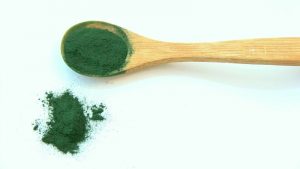Let’s compare the environmental impact of soy, coconut, rice, almonds, oat milk.
The production of vegetable milk doesn’t come without its negative effects for the planet. Even though a glass of cow’s milk produces almost three times more greenhouse gases than any vegetable alternative, drinks made from coconut, rice and other fruits or seeds can also have a high environmental impact.
Almond-based drinks, for example, have recently been accused of causing a real bee hive massacre in California, with the death of 50 billion bees.
Soybean cultivation is causing widespread deforestation. So what should we drink?
1. Coconut Milk
Characterized by an exotic flavor and a high percentage of fats, as an alternative to cow’s milk, coconut milk is one of the most used ingredients for preparing sweets.
It’s obtained from coconuts which are harvested in India, Indonesia and the Philippines. In addition to the exploitation of workers, coconut milk causes the destruction of rainforests: it’s estimated that the growing demand for this product will result in the loss of three acres per minute of rainforest in Indonesia alone.
In addition to that, coconut milk has to travel long distances before it can reach our tables, so we also have to take high livels of CO2 emissions into account.
For these reasons, among vegetable alternatives to cow’s milk, coconut is perhaps the worst as far as environmental impact is concerned.
The solution? Limit your consumption of coconut milk and buy Fair Trade certified coconut milk, which guarantees fair wages for workers and the protection of natural resources.
2. Rice Milk
Rice milk is widely used as an alternative to cow’s milk in the production of cheese-like foods, as well as the preparation of sauces and condiments such as egg-free mayonnaise.
Compared to coconut milk, rice has a lower carbon footprint, though still very high. The problem in this case is the excessive amount of water and pesticides used in rice fields.
Considering its poor nutritional benefits, it is better to avoid consuming non-organic rice milk and to perhaps choose better and more sustainable vegetable alternatives.
3. Almond Milk
As already mentioned, the intensive production of almonds in California is linked to an increasing number of bee deaths. A third of the bees – about 50 billion specimens – have been lost, mainly due to the huge quantities of toxic pesticides used to grow almond trees.
In addition, almond crops require more water than any other vegetable alternative to milk.
If possible, we suggest you buy it from smaller, local producers.
4. Oat Milk
Oat-based drinks are one of the best environmental alternatives to cow’s milk.
Even if you buy imported oat drinks, the cultivation of this cereal is not associated with deforestation or the exploitation of workers.
However, it should be remembered that oats from the United States and Canada are almost always treated with the Roundup pesticide (glyphosate) just before harvest. Thus the cultivation of oats also contributes to bee poisoning.
5. Soy Milk
Soy milk is a very versatile product that can be used to prepare yogurt, bechamel, cream, sauces and other food products normally made with cow’s milk.
In addition to having a neutral flavor (making it suitable for the preparation of savory and sweet dishes), soy milk is the only vegetable alternative that contains a quantity of protein similar to that of cow’s milk.
The main problem of soybean cultivation derives from the fact that this legume is widely used to produce feed for farm animals. This means that many areas of the Amazon rainforest have been wiped out to make way for soybean crops for feed.
The solution in this case is to buy soy drinks that are produced organically and locally.
So what is the best alternative to cow’s milk?
Assuming that any vegetable drink has a significantly lower impact than cow’s milk, we have listed the critical issues of these vegetable alternatives.
In order to choose the most sustainable alternative to milk there are at least four things we can do: opt for a local product, prefer certified drinks when they come from afar, choose organic products and vary the type of drink consumed.
Varying is perhaps the most important aspect to consider ,since any product – when consumed in large quantities – has a negative environmental impact.
We can therefore alternate between soy and oat milk and, occasionally, also consume rice, almond and coconut milk. If at all possible, it would be best to produce them yourself.
In addition to these, we can consider less popular vegetable drinks, such as hemp, flax or hazelnut milk. These are niche crops characterized by small productions, which at the moment have less of an impact on the environment.
—-
Source: Greenme.it






